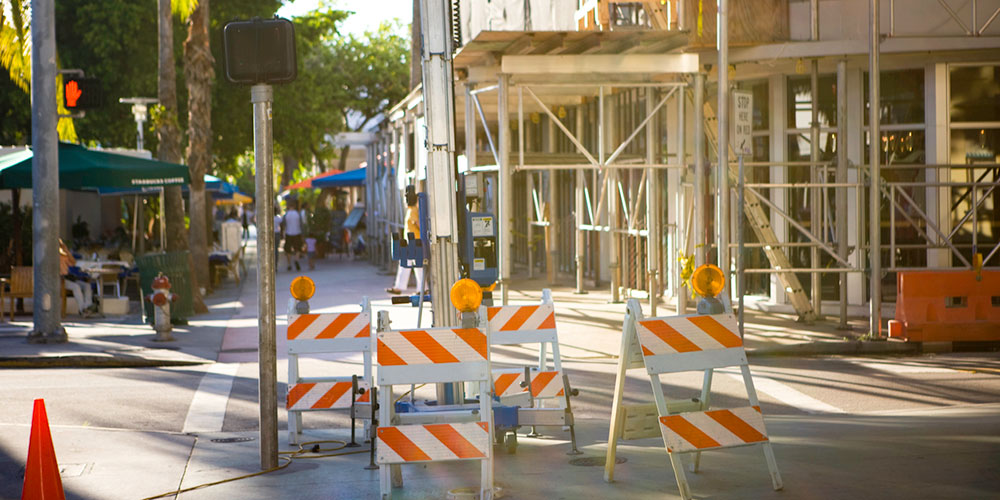Last year, the tragedy of the Surfside building collapse shocked Floridians — and spurred lawmakers to take action. The Florida legislature recently passed a law that will require condo boards to set aside reserve funds for repairs beginning in 2025. The law, which was signed by Governor Ron DeSantis in May, also mandates that boards conduct reserve studies each decade to ensure they have the financial means to make necessary structural repairs.
What Does the New Florida Condo Law Require?
According to U.S. News, there are over 1.5 million condominium units in Florida that fall under the auspices of almost 28,000 associations. 912,000 of the state’s condo units are more than 30 years old and house two million residents. Unfortunately, while many of these buildings are aging throughout the state, only Miami-Dade and Broward counties had condominium recertification programs in place to address the wear, tear, and erosion that occurs over the course of time.
However, the new Florida condo law — called SB 4-D — has changed that. Now, all 67 counties in the Sunshine State are required to conduct inspections and ensure there are finances for needed structural repairs. The legislation modifies Florida Statutes Chapters 553, 718, 719, and 720 and provides for the following:
- Milestone Structural Inspections — This type of inspection is meant to determine the integrity and adequacy of the structural components of a building that is more than three stories high. These inspections must be conducted by a licensed architect or engineer every ten years after a building turns 30 years old (or 25 years old for condos located within three miles of the coastline).
- Structural Integrity Reserve Study and Funding — The Structural Integrity Reserve Study is an assessment of a condo association’s reserve funds for future repairs. The study consists of a visual inspection of the condo’s common areas by a licensed architect or engineer. These studies must be completed every ten years, with the initial study being carried out by December 31, 2024. Critically, associations may no longer waive funding or underfund reserves for items that must be included in a Structural Integrity Reserve Study.
- Maintaining Reports and Studies — The Milestone Structural Inspection Report and the Structural Integrity Reserve Study must both be maintained by the Association for a period of 15 years. It is a breach of fiduciary duty for an officer or director to willfully or knowingly fail to have a Milestone Structural Inspection performed or complete a Structural Integrity Reserve Study.
For buildings with a certificate of occupancy on or before July 1, 1992, the initial Milestone Structural Inspection must be performed before December 21, 2024. Importantly, the inspection comes in two phases. During the first phase, a licensed architect or engineer performs a visual examination of the habitable and uninhabitable areas of a building. If they don’t find any substantial structural deterioration, they may prepare and submit their report. But if deterioration that rises to this level is discovered, a phase two inspection must be performed involving testing that determines whether the building is structurally sound.
Considerations Before Buying a Condo in Florida
A condo is a significant investment. When you’re looking to purchase a condo in Florida, it’s vital to not only consider the stability of a unit, but the structural integrity of the entire building — particularly if it is an older one. Many condos were built before current Florida condo inspection codes were put into place.
Every condo association must maintain certain documents under the Florida Condominium Act and make them available to unit owners for inspection. Prospective buyers should ask to see the association’s records, including those pertaining to recent inspections, building certifications, city permits, and other relevant documents. Under Florida law, a prospective buyer is permitted to back out of a deal if the seller of a property that is part of a condo association doesn’t provide a condominium disclosure.
By reviewing a condo association’s records and documents, buyers can learn about the age and condition of the building, as well as when the last inspection was conducted. They can also find out what types of renovations are planned in the future and how much money is in the reserve fund for these types of repairs. However, it’s important to understand that requesting these records can be complex since there are policies and procedures that must be followed that are not specified in the Florida Condominium Act. This is why it’s essential to have a knowledgeable Florida condominium attorney to guide you through the purchase process.
Contact an Experienced Florida Condominium Attorney
If you are considering purchasing a condo or have questions regarding repairs made to your condo building, you have the legal right to have your inquiries answered by the association. An experienced Florida condominium attorney can help to ensure your concerns are addressed. The Law Offices of Herb M. Milgrim, P.A. is dedicated to representing individuals who own condos, units that are part of homeowners’ associations, and co-ops for a wide variety of housing-related matters.
We serve the needs of clients throughout Florida and offer counsel to resolve disputes in Broward, Dade, and Palm Beach Counties, as well as Miami, Naples, Brickell, Hollywood, Davie, Pembroke Pines, Hallandale, Sunny Isles, Aventura, North Miami, Boca Raton, and West Palm Beach. We exclusively represent owners and never the condo associations or their boards. To schedule a consultation, we welcome you to contact us at (954) 966-3909.

